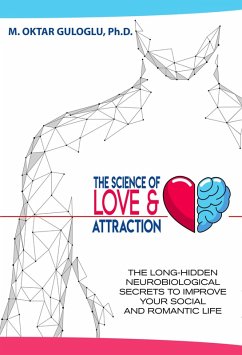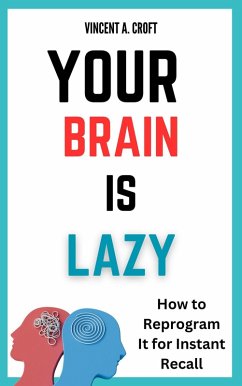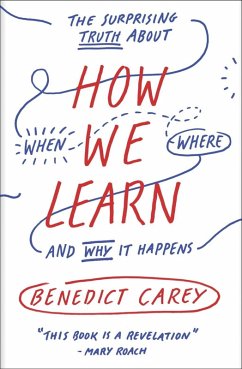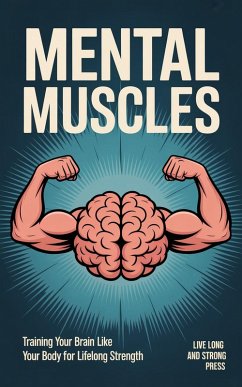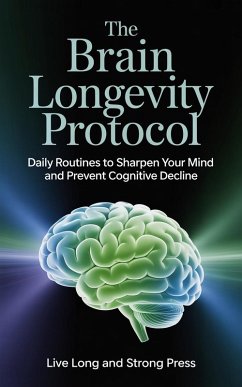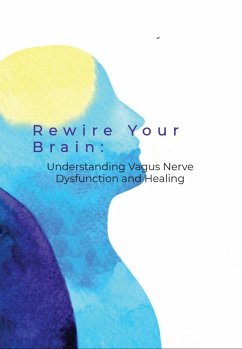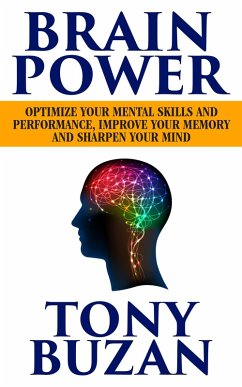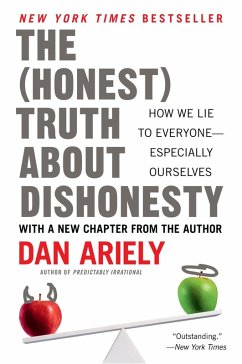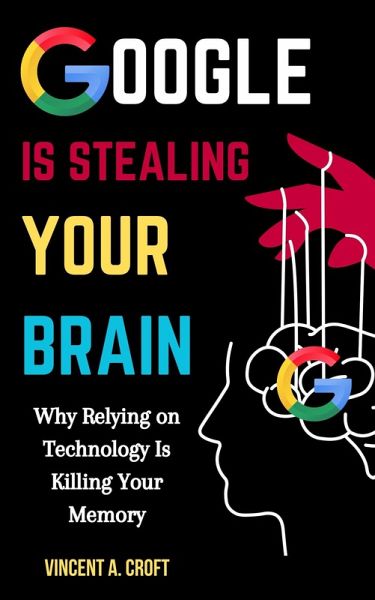
Google Is Stealing Your Brain: Why Relying on Technology Is Killing Your Memory (eBook, ePUB)
Sofort per Download lieferbar
18,99 €
inkl. MwSt.

PAYBACK Punkte
0 °P sammeln!
The human brain was never meant to be outsourced, yet that is exactly what's happening. Every forgotten phone number, lost password, and moment of hesitation before a simple recall is a symptom of a larger problem-an overdependence on technology that is eroding cognitive function. The ability to remember is being traded for the convenience of instant access, and the consequences extend beyond momentary lapses in memory.Modern technology offers an effortless way to store, search, and retrieve information, but each time the brain defers to a search engine, it weakens its natural ability to store...
The human brain was never meant to be outsourced, yet that is exactly what's happening. Every forgotten phone number, lost password, and moment of hesitation before a simple recall is a symptom of a larger problem-an overdependence on technology that is eroding cognitive function. The ability to remember is being traded for the convenience of instant access, and the consequences extend beyond momentary lapses in memory.
Modern technology offers an effortless way to store, search, and retrieve information, but each time the brain defers to a search engine, it weakens its natural ability to store and recall data. The reliance on digital tools has shifted memory from internal processing to external devices, creating an illusion of intelligence while diminishing real cognitive strength. The more the brain offloads, the less it retains, and over time, critical thinking and problem-solving skills suffer.
The decline of memory function is not accidental. Search engines, apps, and digital assistants are designed to make people dependent on them. Every quick lookup rewires the brain, reducing the need for deep thinking and weakening neural pathways. With fewer opportunities to recall information independently, memory muscles atrophy, making even basic recollection a challenge.
Studies show that reliance on technology alters how the brain prioritizes information. When a person knows they can find an answer online, they make little effort to remember it. This affects not only personal memory but also learning efficiency and long-term retention. Digital memory is replacing natural memory, and the implications reach beyond trivia and facts. The ability to analyze, reason, and connect ideas is built on memory strength, and as recall weakens, so does intellectual depth.
The problem is not just individual-it is generational. Younger minds, raised in an era of instant access, are losing the ability to memorize and synthesize information. The shift from knowledge retention to mere information retrieval is changing how people learn and process the world. Without intervention, this trend will continue, leading to a society where critical thinking is rare and independent problem-solving is nearly extinct.
Breaking free from digital dependency requires more than willpower. The brain must be retrained to engage with information in ways that reinforce natural recall. Strengthening memory starts with active learning, deliberate recall exercises, and intentional reduction of reliance on search engines. Simple changes-like memorizing key facts, practicing mental calculations, and engaging in discussions without digital prompts-can rebuild cognitive resilience.
Technology is a tool, not a replacement for thinking. When used correctly, it enhances memory rather than replaces it. The key is balance-using digital resources without allowing them to take over cognitive functions. By shifting habits and making conscious choices, it is possible to reclaim memory strength and sharpen intellectual abilities.
The danger of unchecked reliance on technology is not a distant threat; it is already happening. The symptoms are visible in shorter attention spans, increased forgetfulness, and a growing discomfort with deep thought. Recognizing the problem is the first step in reversing the damage. With the right strategies, memory can be restored, cognitive skills can be revived, and the brain can reclaim its role as the primary processor of knowledge.
Modern technology offers an effortless way to store, search, and retrieve information, but each time the brain defers to a search engine, it weakens its natural ability to store and recall data. The reliance on digital tools has shifted memory from internal processing to external devices, creating an illusion of intelligence while diminishing real cognitive strength. The more the brain offloads, the less it retains, and over time, critical thinking and problem-solving skills suffer.
The decline of memory function is not accidental. Search engines, apps, and digital assistants are designed to make people dependent on them. Every quick lookup rewires the brain, reducing the need for deep thinking and weakening neural pathways. With fewer opportunities to recall information independently, memory muscles atrophy, making even basic recollection a challenge.
Studies show that reliance on technology alters how the brain prioritizes information. When a person knows they can find an answer online, they make little effort to remember it. This affects not only personal memory but also learning efficiency and long-term retention. Digital memory is replacing natural memory, and the implications reach beyond trivia and facts. The ability to analyze, reason, and connect ideas is built on memory strength, and as recall weakens, so does intellectual depth.
The problem is not just individual-it is generational. Younger minds, raised in an era of instant access, are losing the ability to memorize and synthesize information. The shift from knowledge retention to mere information retrieval is changing how people learn and process the world. Without intervention, this trend will continue, leading to a society where critical thinking is rare and independent problem-solving is nearly extinct.
Breaking free from digital dependency requires more than willpower. The brain must be retrained to engage with information in ways that reinforce natural recall. Strengthening memory starts with active learning, deliberate recall exercises, and intentional reduction of reliance on search engines. Simple changes-like memorizing key facts, practicing mental calculations, and engaging in discussions without digital prompts-can rebuild cognitive resilience.
Technology is a tool, not a replacement for thinking. When used correctly, it enhances memory rather than replaces it. The key is balance-using digital resources without allowing them to take over cognitive functions. By shifting habits and making conscious choices, it is possible to reclaim memory strength and sharpen intellectual abilities.
The danger of unchecked reliance on technology is not a distant threat; it is already happening. The symptoms are visible in shorter attention spans, increased forgetfulness, and a growing discomfort with deep thought. Recognizing the problem is the first step in reversing the damage. With the right strategies, memory can be restored, cognitive skills can be revived, and the brain can reclaim its role as the primary processor of knowledge.
Dieser Download kann aus rechtlichen Gründen nur mit Rechnungsadresse in A, B, CY, CZ, D, DK, EW, E, FIN, F, GR, H, IRL, I, LT, L, LR, M, NL, PL, P, R, S, SLO, SK ausgeliefert werden.




